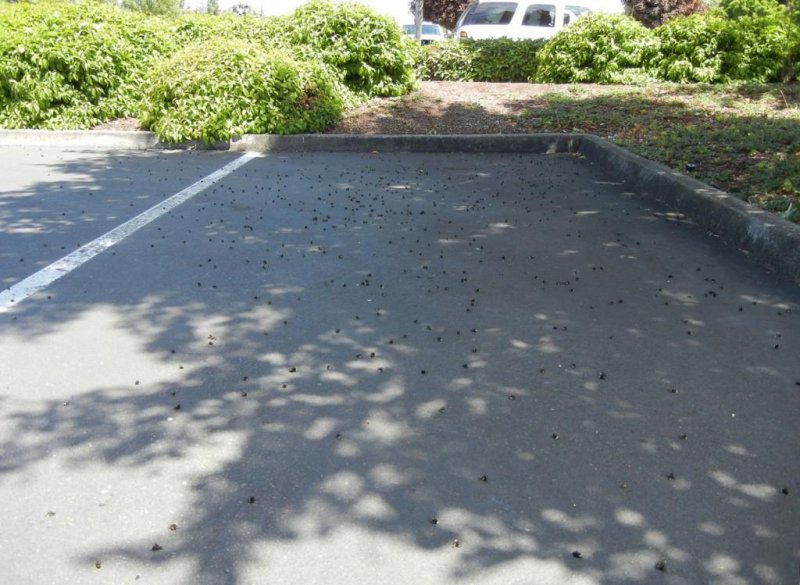Tens of thousands of dead bumblebees, honeybees, ladybugs, and other insects were discovered blanketing a Target parking lot in Oregon Sunday -- a "heartbreaking" start to National Pollinator Week.
Bumblebees were the species hardest hit, with an estimated 25,000 dead and 150 colonies lost.















